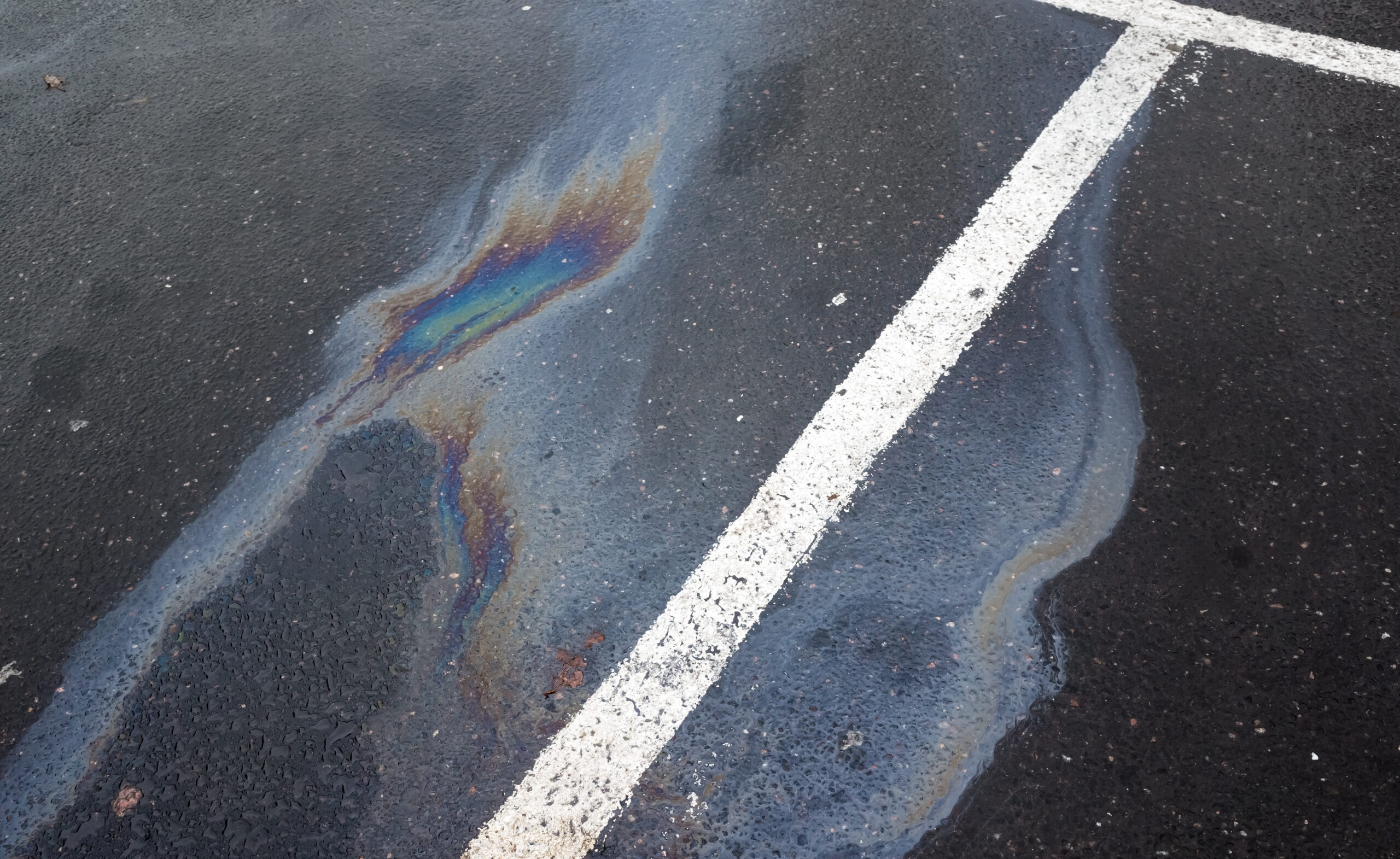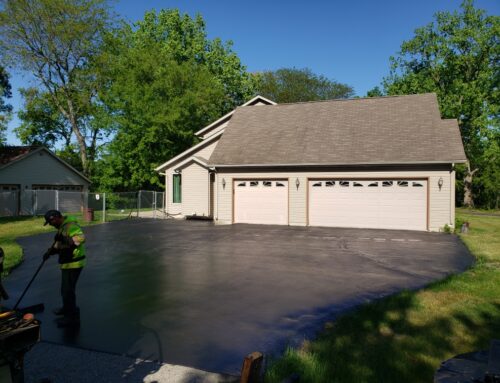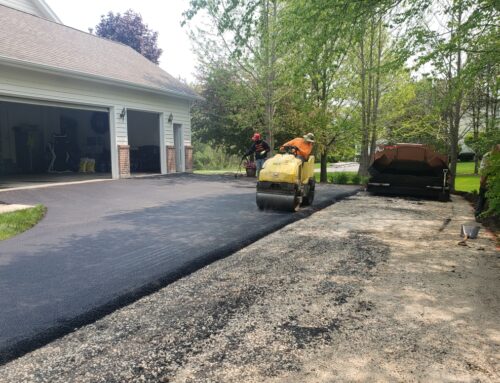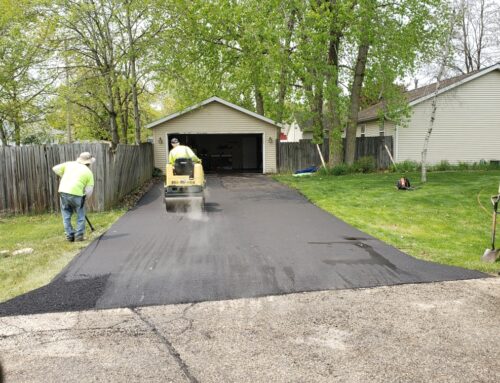Spills happen, and sometimes we don’t even notice they’re happening. If you’ve ever owned an older car, chances are you’ve had at least one random leak that you didn’t notice until you moved the car and saw the giant puddle on the ground. Or maybe you’re working on some house projects and knock something over. You may just stop and think “eh, it’s outside, it’s not hurting anything!” But that’s not always the case. To protect your asphalt from corrosion and deterioration, it’s important to clean up any chemical spill as soon as possible. Not sure what to do? Here are some common spills and how to clean them up!
- Oil. This is probably the most common spill. While there are commercial products you can buy, you may have some things already on hand that can help. If it’s a fresh spill, try baking soda or kitty litter. Always wipe up as much as you can first. Sprinkle a generous amount on the spill and let it absorb, you can gently scrub or press it in as well, let it set overnight, then gently sweep away the excess. If there is still a stain, use degreasing dish soap and warm water and gently scrub it into the stain.
- 2.Gasoline. Similarly to oil, you can use baking soda or kitty litter to clean up a gas spill, however make sure you wear protective gear like gloves and goggles to prevent any accidents. After the absorbing agent is cleaned up, use warm water and dish soap to scrub any excess. It is also important to dispose of any materials used to clean up the spill properly as they are going to be extremely flammable. Your local fire house should be able to point you in the right direction. Store in a closed container until proper disposal, but dispose of the container quickly to avoid combustion.
- Transmission Fluid. Another common mystery leak is transmission fluid. First spray oven cleaner on the stain and let it set for 10 minutes. Scrub with a coarse brush and rinse with high power (you can use a pressure washer if you have one). If there is still a stain, repeat the process.
- Antifreeze. Antifreeze is a little easier than other spills. Because it is water soluble, soak up as much as you can with newspaper and spray the stain with a pressure washer.
- Paint. Most, not all, paint will be water soluble. Use a mixture of warm water and a little dish soap and scrub until the paint lifts. A pressure washer will help as well after the first layer is removed!
When you’re using any of these techniques, it is important to attempt them as soon as possible. These work best on fresh, wet spills. Spills with grease and oil act as a solvent to the tar that holds asphalt together which will eventually cause corrosion and deterioration. This can affect the structure and foundation of your paved surfaces. As long as the spill itself is cleaned up, it is okay for a small stain to remain on the surface. While unsightly to some, stains will not affect your asphalt and can be covered up easily when it’s time for another layer of seal coating!




